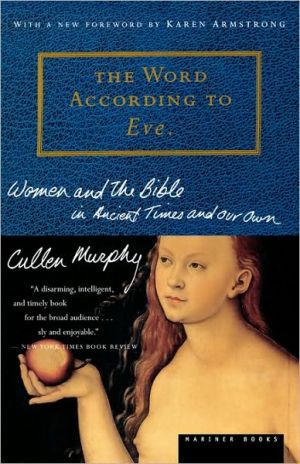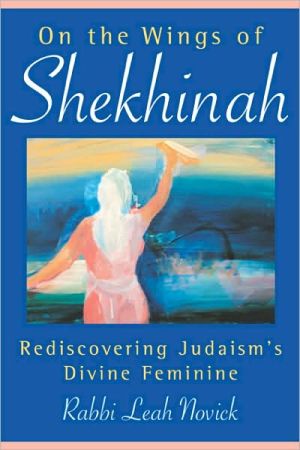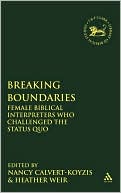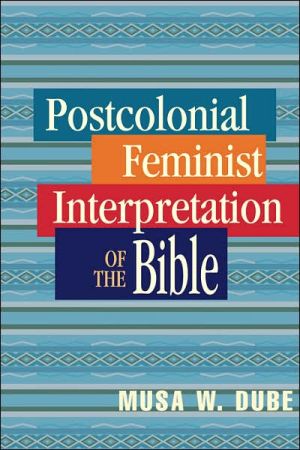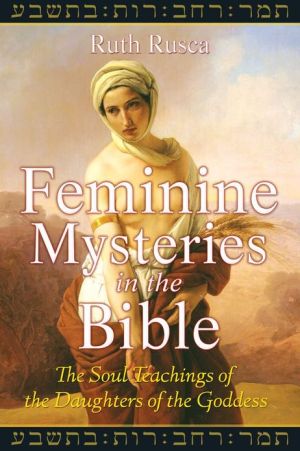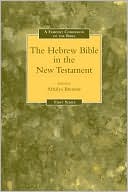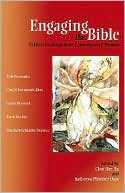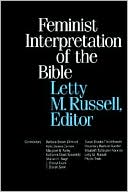Word According To Eve Pa
In the world that created the Bible, there were no female scholars and theologians, yet in the past four decades, owing to such stunning discoveries as the Dead Sea Scrolls and the Nag Hammadi texts, as well as advances in historical understanding and the rise of feminism, a generation of scholars has found new ways to interpret the Scriptures and the societies that created them—exploring avenues traditionally ignored by male-dominated religious study. Surveying the new scholarship and the...
Search in google:
For thousands of years, Jews and Christians alike have turned to the Scriptures to understand God and themselves. In recent years, however, social changes and archaeological and historical discoveries have alerted worshiper and scholars to ways in which traditional culture may have distorted the writing of the Bible. Likewise, changes in our society's views of women have affected how we read that book of books."The family Bible," Cullen Murphy writes, "is as much as anything else an artifact, a symbol of our civilization. Yet it is also the product of a world and of sensibilities manifestly not our own." In that world, there were no female scholars and theologians. In our world, owing to stunning discoveries of such ancient treasures as the Dead Sea Scrolls and the Nag Hammadi Library, and given advances in historical understanding, we are able to approach the Bible differently. Today, those who read the Bible query the role that male scholars have traditionally assigned to women, both those who appear in its pages and those who study it.With a keen and informed journalist's intelligence, Cullen Murphy looks at recent Biblical research and interviews scholars who have intensively studied questions about women and the Bible. In the process, he alerts us to much about ourselves and about our sense of worship. Jo Ann Kay McNamara Murphy's book is sly and enjoyable. Seemingly uncontentious, it subtly reveals the continuing marginalization of feminist scholarship despite its successes. -- New York Times Book Review
Foreword: The Writing on the Wall1Joining the Procession12The Sorcerer's Apprentice193By the Hand of a Woman384The Mothers of Israel625Words of Wisdom866The Wandering Rock1097Was Jesus a Feminist?1248Born of a Woman1529Prominent Among the Apostles?17210Venus in Sackcloth19411A Glimpse Through the Door215Epilogue: The Word According to Eve236Notes245Bibliography260Acknowledgments276Index278
\ From the Publisher"Provocative and lucid . . . an engaging book." Boston Globe\ "In The Word According to Eve, such startling scholarship is unveiled for us by a guide and translator with good humor, graceful prose and formidable intellect." The Los Angeles Times\ "The Word According to Eve is a disarming, intelligent, and timely book for the broad audience . . . sly and enjoyable." The New York Times\ \ \ \ \ \ Peter KurthWhile Americans celebrated the 150th anniversary in 1998 of the first women's rights convention at Seneca Falls -- and Ally McBeal appeared on the cover of Time Magazine next to Susan B. Anthony, Betty Friedan and Gloria Steinem -- one radical feminist from the glorious past appeared to get lost in the shuffle. This was Elizabeth Cady Stanton, the founder, with Ms. Anthony, of the American Woman Suffrage movement and author of The Woman's Bible (1895), a compendium of wit, wisdom and biting commentary on the status of women in Scripture. \ "The Bible teaches that woman brought sin and death into the world," Stanton wrote, "that she precipitated the fall of the race, that she was arraigned before the judgment seat of Heaven, tried, condemned and sentenced. Marriage for her was to be a condition of bondage, maternity a period of suffering and anguish ... Here is the Bible position of woman briefly summed up." Stanton's incendiary words -- she once boycotted a suffrage meeting that had scheduled "Guide Us, O Thou Great Jehovah" as its opening hymn, pointing out that Jehovah had "never taken any active part in the suffrage movement" -- led to her eventual fall from grace within the National American Woman Suffrage Association and the elevation of Anthony, her friend and colleague, to the position of first heroine in the drive for women's enfranchisement. Anthony had pleaded with the organization not to forsake Stanton, its chief strategist and thinker, but Jehovah won the day. As Cullen Murphy observes in The World According to Eve: Women and the Bible in Ancient Times and Our Own, he frequently does.\ "For roughly a century," Murphy writes, "feminist criticism of the Bible, on the one hand, and biblical scholarship by women, on the other, constituted two widely separated worlds, worlds that would not begin to converge until the 1960s." The World According to Eve is a fascinating synthesis of these two discrete threads, focusing at once on the reflexive feminist idea that the depiction of women in the Bible is in and of itself damaging to women, and on the vastly expanding work of contemporary feminist scholars, many of whom argue that these depictions have for centuries been mistranslated, misused and misinterpreted to women's disadvantage. Murphy, managing editor and social columnist for the Atlantic Monthly, describes himself openly as "male, Roman Catholic, married, and a parent, unembittered by the sting of personal grievance or the lash of impersonal oppression." He is not a woman, in other words, struggling to reconcile her life with her faith, but a sympathetic observer "impelled by curiosity, not rage." The result is a sharp, smart, eye-opening look, completely free of polemic, at those sections of the Bible dealing with women that scholars invariably describe as "problematic."\ "Was Jesus a feminist?" Murphy asks. Did women write parts of the Bible? What was the true role of women among the early Christians and Israelites? How did Mary Magdalene, of whom no evil word is spoken in the New Testament, come down in legend as a reformed whore? Where is biblical archaeology headed now that women have staked their claim to the sites and scrolls? Murphy remains scrupulously impartial in discussing these and other themes, allowing feminist scholars to speak for themselves and concluding on a note of cautious optimism. Pandora has opened the box and no one can shut it again. "The deep involvement of women in the work of organized religion has always sustained it," Murphy writes, "but their involvement now extends to unprecedented levels of institutional authority. The influence of women will only grow, both in conventional channels and unconventional ones." Highly recommended. -- Salon\ \ \ \ Jo Ann Kay McNamaraMurphy's book is sly and enjoyable. Seemingly uncontentious, it subtly reveals the continuing marginalization of feminist scholarship despite its successes. -- New York Times Book Review\ \ \ \ \ Publishers WeeklyMurphy, managing editor of the Atlantic Monthly, takes his cue from Catholic theologian David Tracy's remark that the encounter of feminism with religion would be "the next intellectual revolution." In a brilliant survey of the work of women scholars in biblical studies, Murphy provides one of the finest and most comprehensive introductions to the accomplishments of women in the field of biblical studies. Although he devotes a chapter to the work of Elizabeth Cady Stanton and the groundbreaking publication of the Woman's Bible in 1895, he reminds us that only within the past 30 years have women been recognized for their contributions to biblical scholarship. Murphy devotes each chapter to a prominent woman scholar who is changing the face of biblical scholarship through work in archeology, textual criticism, translation of newly discovered or little-known texts, biblical theology and studies of the historical Jesus. Among the women scholars he interviews and spotlights are Old Testament scholar Phyllis Trible (Union Seminary), who was instrumental in using rhetorical analysis and feminist theory to provide fresh readings of the creation stories in Genesis; Karen King, professor at Harvard Divinity School, whose translation of The Gospel of Mary has helped to demonstrate the fragmentation of early Christianity concerning women's roles; and Elisabeth Schussler Fiorenza, whose book In Memory of Her brings feminist hermeneutics to bear on the life and work of Jesus. Through the lenses of feminist biblical scholarship, women in ancient times, like Mary Magdalene and Deborah, Israel's great judge, take on new life. Murphy's book is a must read for anyone wishing to understand the goals and the results of contemporary feminist biblical criticism.\ \ \ \ \ Library JournalIn an era when Time Magazine's cover asks, "Is feminism dead?" comes this exceptional overview of feminist scholarship in biblical studies. Murphy, managing editor at Atlantic Monthly, admits this is reporting, not theology, but what reporting it is! Acquainting readers with such theological luminaries as Phyllis Trible, Amy-Jill Levine, and Jaroslav Pelikan (among others), Murphy humanizes the discourse by sharing personal histories of each as they struggle with their insights on biblical hermeneutic. We follow them to their offices, we hear them at conferences, we participate as they defend their work. Murphy furnishes a present-day state-of-the-art paper on biblical feminism and posits that feminism's creativity, curiosity, and understanding will propel it, vibrant and alive, into the next century. A rich bibliography and extensive footnotes. -- Sandra Collins, Pittsburgh Theological Seminary Library\ \
